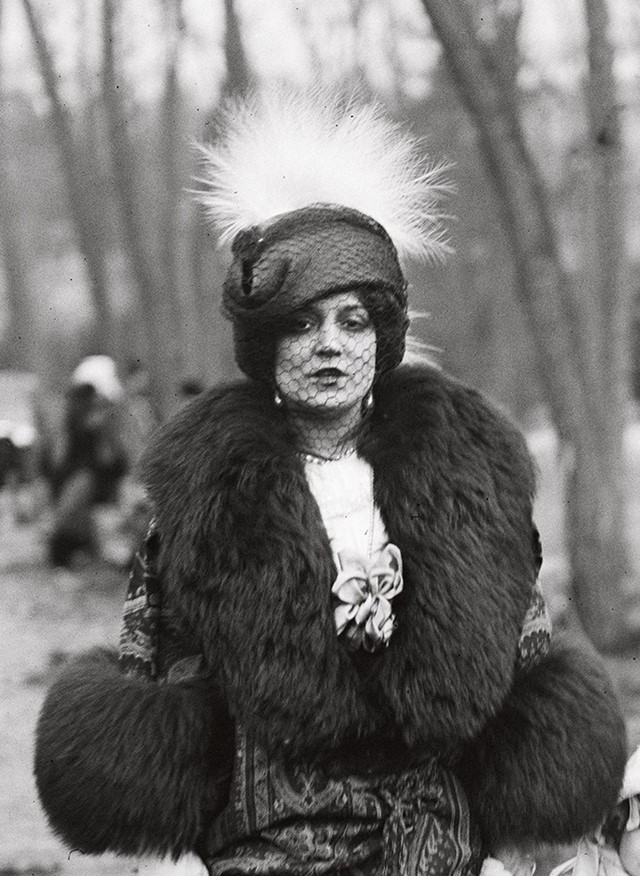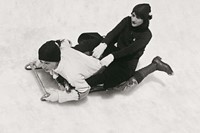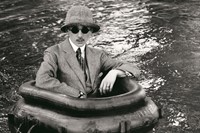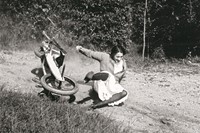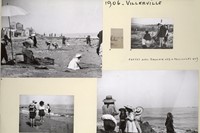As a new book on the 20th-century photographer is published, Daisy Hoppen shares why she’s been returning to Lartigue’s images of Belle Époque France during lockdown
When I was growing up, my father [the gallerist Michael Hoppen] would often refer to Jacques Henri Lartigue as his Desert Island Photographer; looking through his photographs always made him so happy, as they are all about joy. It’s a feeling that I have always shared, since a Lartigue photograph can only make you smile. Whether it’s depicting the beaches of France, or women promenading, there is such a carefree quality to his pictures – I’d have to agree with that my father in choosing Lartigue as my Desert Island Photographer, too.
Looking through a newly published book on Lartigue entitled The Boy and the Belle Époque reminded me of this in so many ways. Showcasing work from the Belle Époque era in France, pre-First World War, the pictures reflect a world seemingly without suffering, horror or sadness. It’s true escapism, given the current pandemic that the whole world finds itself living through today, and a real joy to read and lose yourself in.
First given a camera by his father before he was even ten years old, Lartigue started by taking photographs of his parents, the world around him, his nanny, the social parade in the Bois de Boulogne and summers on the beaches of Étretat and Trouville. Some of my favourite images are of women in their luxurious (now of course very frowned upon) furs promenading with parasols and small lap dogs. In the book Lartigue is quoted as saying, “I suppose I go to the park to photograph the ladies in their most outrageous and beautiful hats”. Between 4pm and 6pm motor cars and horse-drawn open carriages would circle the tree-lined drives, stopping at the Pavillion d’Armenonville.
I love the photographs of these women in feather-plumed hats, and lace veils covering their faces. And Lartigue agreed: “She, the lady who is very decked out, very fashionable, very ridiculous ... or very pretty ... from afar she stands out among the strollers like a golden pheasant in a hen coop,” the photographer is quoted as saying. “She approaches ... I’m shy, trembling a little ... 20 metres, ten metres, eight, six ... Clack! My camera shutter makes so much noise that the lady almost jumps as much as I do.”
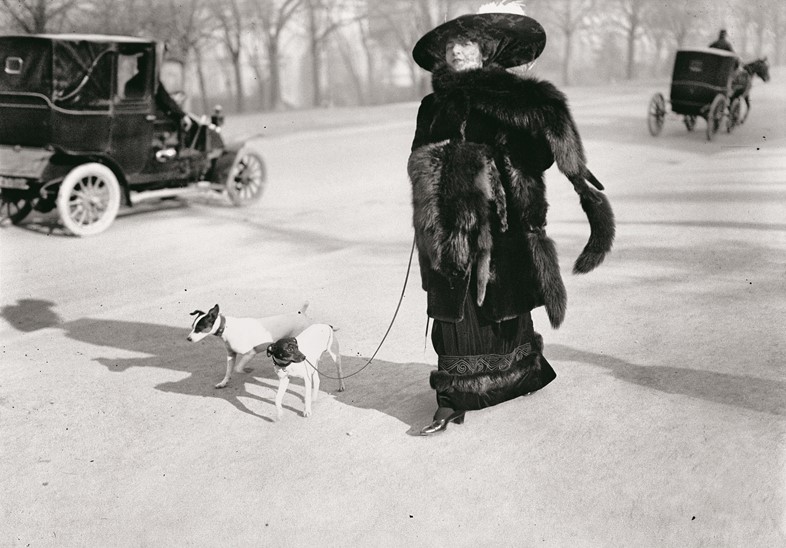
The irony of today’s lockdown is that having one daily chance to walk outside your home, it almost feels like a promenade – albeit without the pomp and ceremony. Over the last few weeks I have transitioned from leggings and a jumper to a coat that makes me feel cheerful, and getting dressed to leave the house to ‘promenade’ around my park feels eerily in tune with some of the quotes spoken by Lartigue in this new book. It’s not a social situation engineered to flirt and capture attention, but it’s a time to make the most of leaving the house and observe the world around you. I am no Lartigue with a camera, but my daily promenade around the park makes me think of him and his work – and these ideas of manners, etiquette, and social parading. Those people with sweet dogs, others with lovely coats, all bring me real joy and take me back to Lartigue. “Motivated by a desire to catch and preserve ‘happiness on the wing’, a transient moment before it slips away, the young Lartigue created images now acknowledged as masterpieces in the history of photography,” as the book’s author Louise Baring says. I couldn’t agree more and I’ve never loved looking at Lartigue photographs more than during this time.
My father sums it up well, too. “I have always said that if there was one photographer I would take with me to a desert island, it would undoubtedly be Jaques Henri Lartigue – no competition. Why? Because he always makes me smile and Lartigue really understood what ‘beautiful’ was,” he explains. “His other unique ability was to capture that fleeting moment when someone reveals themselves, and he was able to do this again and again. He was someone who was totally at one with his camera and it became, from the age of eight, his constant companion.” In today’s age we all need a companion. Whether a camera (I am taking one picture every day through lockdown on a disposable camera) or something else, Lartigue’s work reminds us of a beautiful era – and more beautiful times to come.
Lartigue: The Boy and the Belle Époque by Louise Baring is out now, publishing by Thames & Hudson.
Daisy Hoppen is the founder of DH-PR, a London-based communications agency. She also works in house with a small number of brands, companies and personalities across fashion, art and culture.
